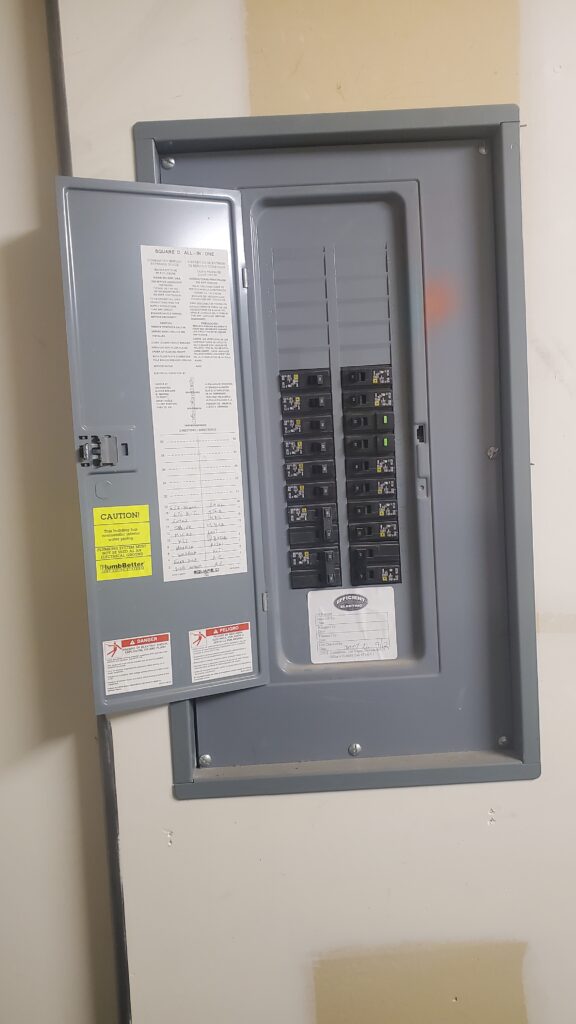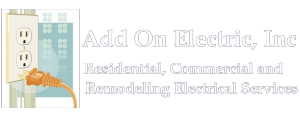Top Electrical Hazards in Albuquerque Homes

Electricity powers our lives, but it can also put your home and family at risk if wiring issues pop up. Keep your eyes peeled for electrical hazards to guard your treasures.
Those Frayed Wires Spell Big Trouble
Exposed, damaged or frayed wires seriously increase chances of electrical disaster striking. Make 100% sure wiring is shipshape by having a pro check it regularly. Swap out any aging wires they find. Don’t let decay undermine safety.
Wires hidden behind walls or under carpets slowly crumble over time. Trouble might not show up until sparks burst out. Schedule checkups to catch issues before crisis hits. It’s a small price to pay to protect your pad.
Faulty wiring is an invisible threat, but you can reveal it. Don’t let sketchy wires lurk unseen.
Water and Electricity? No Way!
There should be zero electrical outlets in bathrooms, kitchens or anywhere wetness can happen. Keeping outlets away from moisture helps avoid shocks since water zaps electricity around fast. Don’t put outlets and water within reach of each other. That’s an accident waiting to happen.
If outlets are too close to wet spots, have a pro relocate them ASAP. It may need rewiring, but that’s pennies to protect your family. Don’t let convenience outweigh playing it safe.
Electrocution can happen if water touches electricity. Guard your household by separating them completely. When in doubt, play it safe.
Don’t Underestimate Lightbulbs
We rarely think lightbulbs can cause electrical disasters. They aren’t dangerous just sitting there. But place them near flammable stuff and fires can ignite. Upholstery, bedding or anything burnable can also catch.
Bulbs generate massive heat that can light surroundings on fire if left touching fabrics, paper or flammable things. Take precautions like shades or keeping bulbs away from burnables. Don’t underestimate that glowing bulb.
A house fire from a lightbulb might seem unlikely, but it can occur if you’re not careful. Don’t allow a preventable tragedy through negligence. Stay alert to lightbulb placement.
Covered Cables Overheat – Watch Out!
Wires overheat dangerously when buried under insulation. Fires from overheated covered cords and wires are rare but happen. Blame the heat from electrical lines and cords. When unsure, keep cords and wires out in the open.
Don’t bundle cords in closed, poorly ventilated spots. Leave breathing room to avoid overheating. Use your noodle to prevent disaster. Safety first, always.
Electrical wiring needs air flow to prevent hazardous overheating. Don’t let covered cables endanger your home unnecessarily. Proper ventilation could make or break safety.
Water Makes Electrical Fires Worse
Pouring water on an electrical fire is a big no-no. Water can make it worse, so don’t use water if one starts. Keep a fire extinguisher handy and use that instead. Don’t grab water in panic.
Water spreads rather than extinguishes electrical fires. React fast with the right tools. Don’t waste time getting water when an extinguisher is needed.
Prep for different fire situations and do what’s needed. Consider a first aid class covering electrical and grease fires. Education saves lives when it counts. Don’t take it lightly.
Kids’ Safety Is Priority #1
Little kids have endless curiosity about their world. Parents and caregivers should take extra safety steps for kids under five.
Install plastic outlet covers over all sockets in reach. They prevent fingers or stuff slipping in. Uncovered outlets can seriously injure or kill. Don’t take chances with child safety.
Hide loose cords out of sight and reach. Little hands tend to grab. Make sure electrical dangers are inaccessible. Childproof decisively.
With child safety, no room for messing around. Use maximum alertness.
Wet Hands and Electricity Don’t Mix
Wet hands seriously increase chances of shock from appliances. Too many of us grab the hairdryer with wet hands after showering. Keep gadgets away from sinks, tubs and showers. Don’t handle electronics with wet hands.
Water amplifies electrocution risks. Maintain a safe zone between water sources and electronics. Make it a habit.
A momentary slip in judgment can have lasting impact. Develop routines to avoid handling electrical stuff near moisture, especially with wet hands or feet. Put safety first, every time.
Use Extension Cords Carefully
Don’t invite mishaps with unprotected extension cords. Fasten them securely whenever possible to avoid tripping or accidents. For extra safety, use outlet covers on unused sockets.
Check extension cords for fraying or loose plugs regularly. Toss and replace any that are damaged. They’re unpredictable. Better safe than sorry.
Carefully place extension cords to avoid high traffic areas. Tuck safely out of walkways when possible. Apply forethought to dodge risks. Play it safe when electricity’s involved. Protect your family by making electrical safety a top focus in your Albuquerque home
